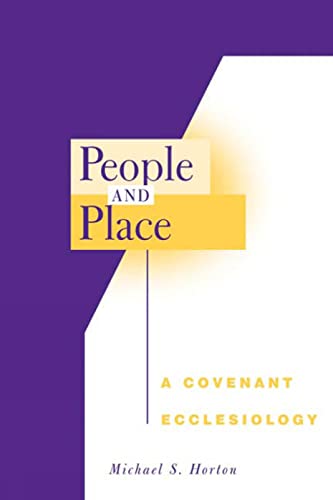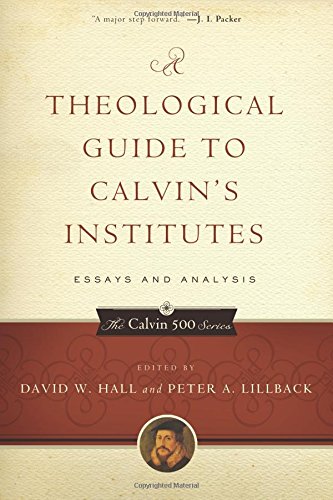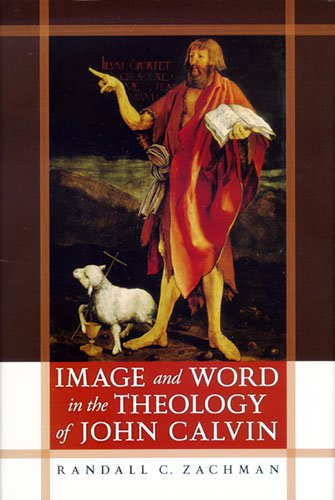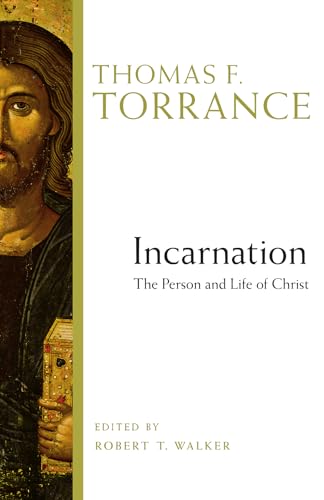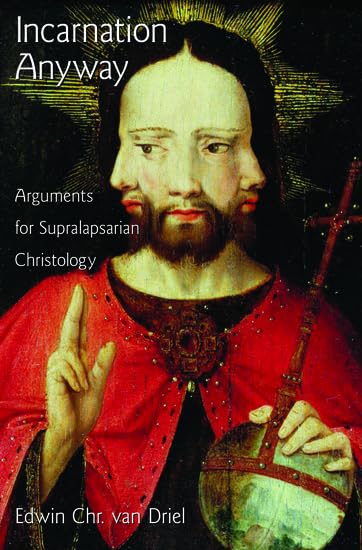People and Place: A Covenant Ecclesiology
Written by Michael S. Horton Reviewed By Stephen N. WilliamsWith this volume, Michael Horton winds up a four-volume series designed to integrate our theological thought by adumbrating a covenantal perspective that is at once traditionally Reformed and independently contemporary. His quarry in this book is ecclesiology, which he covers as comprehensively as space allows. The three main sections respectively treat the origin, identity, and destination of the church, the whole being governed by a conviction about the nature and form of Christ’s presence in salvation-historical and eschatological perspective, for the church must be understood out of its existence in vital union with the ascended, living, and coming Christ. Readers acquainted with the earlier volumes in this series will know that the author outlines his position by conceptualizing it in terms of ‘meeting a stranger’ as opposed to ‘overcoming estrangement’ and ‘the stranger we never meet’. The full substance and force of these contrasts will be hard to appreciate without reading the earlier works, but this will not deter us from understanding how these notions are applied in this volume and a modest chart on page 68 summarises the way in which ecclesiological debate is conducted under these rubrics.
Broadly speaking, Michael Horton aspires to be solidly Reformed but in a way that incorporates into a covenantal framework emphases from outside the Reformed tradition where they are compatible and helpful. An example, which has also featured earlier in the series of volumes, is the use of Eastern Orthodox thought: Eastern preoccupation with ‘energies’ can be harnessed by a covenantal theology which emphasizes ‘the workings of God’ (p. 137). In fact, the author avers that ‘we should not speak of a Reformed faith or an Orthodox theology or a Lutheran confession, but of a Christian faith, theology, and confession, from a Reformed, Orthodox, or Lutheran perspective’ (p. 210). However, we shall understand just how little or how much is conceded to non-Reformed perspectives only if we read the book mindful of the qualification that the author places on this statement, a statement uttered in light of the challenge to ‘our tendency to find our ultimate identity in our own denomination or tradition’.
It is hard to summarise the theological content of this book without making it sound trite, and this would do it a greater injustice than the one which I propose to do, which is to rest content with a general description of the book. Michael Horton is a scribe who brings forth things old and new: basically, his is the ecclesiology and sacramentology of the classic Reformed Presbyterian tradition, where the one holy, catholic, and apostolic church is the creatio and creatura Verbi (creation and creature of the Word), its features delineated in a renewed conceptual framework from time to time and quite freshly presented even when the conceptuality is familiar. Michael Horton’s studies in a covenantal perspective are always rewarding and this is no exception. Nothing is missing from the field of vision: doctrine, mission, liturgy, and practice are contained within a balanced embrace, to risk an awkward metaphor.
For all its strengths, and despite its broadly compelling appeal to covenant, it almost inevitably has its drawbacks. Evangelicals of other traditions will understandably chafe at being told ‘that the difference between this [a Radical Protestant] perspective and the Reformed position are as great as those that separate the Reformed from the Roman Catholic view’ (p. 112). The ‘Radical Protestant’ encompasses Baptist and Anabaptist traditions. This statement is generated by the familiar claim that the Reformed emphasise the sacraments as promise, whereas Catholics and Baptists emphasise them as offerings, the offering of faith in the latter case; this, then, is the particular point to which Horton’s words are directed, but it is a central point indeed. However, I think that this is a case where the use of formal theological categories more than runs the risk of obscuring significant religious differences. I do not doubt that Presbyterian/Baptist differences on the sacrament are important, but it is possible to draw the lines of theological division on the sacraments at more than one point, particularly when we consider what all parties concerned understand by the nature of lively faith. Protestant/Catholic differences may begin to look different in that light, and evangelical Presbyterian and Baptist perspectives appear more closely aligned in contrast to Roman Catholicism than they do on Horton’s account.
Further, it seems to me that the author is insufficiently self-critical as regards the Christological foundations of his ecclesiology and sacramentology. We may ultimately conclude as Calvin did on the sacramental presence of the risen Christ, but the assertion that the humanity of Jesus Christ is located in place (which apparently means in space) while the divinity is ubiquitous generates obvious and familiar problems for the Reformed tradition. Horton is certainly aware of inadequacy in Calvin’s position here (pp. 10, 131–35), but it appears to me that the difficulties are not really tackled by tacking on a fuller eschatological perspective at this juncture. Perhaps they are insufficiently explored because a lot of space is given to quotation from various authors; Bonhoeffer, Newbigin, and John Webster are leading positive theological contributors, though Douglas Farrow is extensively used on this particular point. This entails time taken out of a rigorous defence of the author’s own position. However, it may be that the author regards the conceptual issues surrounding space, time, and Christology as simply too many to be treated in a volume devoted to ecclesiology, which is concerned, for example, to defend Presbyterian polity (212–20) and cannot, therefore, over-extend itself in matters ontological.
In this and in preceding volumes, we have been given wholesome and substantial fare indeed. This is a worthy volume that concludes a fine series for which, volume and series alike, the author deserves the thanks of all who want to think biblically, theologically, and practically in a new world about an abiding Word.
Stephen N. Williams
Stephen Williams is professor of systematic theology at Union Theological College in Belfast, Northern Ireland, and served as general editor of Themelios from 1995 to 1999.
Other Articles in this Issue
Why are we talking about preaching with power? Because of what Christianity is...
In the mid-twentieth century, one could readily find informed Protestant observers acknowledging the Calvinist tradition’s major missionary contribution...
The summer of 2007 was the wettest in Britain since records began, registering over twice the usual amount of rainfall between May and July...
How Far Beyond Chicago? Assessing Recent Attempts to Reframe the Inerrancy Debate
by Jason S. SextonThe doctrine of inerrancy has been a watershed issue among evangelicals in the West, perhaps now more evident than ever...
Quite apart from commentaries and hermeneutical textbooks, books on the Bible—its nature and ultimately its authority—have been appearing with daunting frequency of late


